Short History of Some Italian Poets (feat. True Love & the Black Death)
This trip was funded by my poetry MFA, and Italy—especially Florence and the region it’s in, Tuscany—has been home to many famous poets. Petrarch (1304-1374) was born in Arezzo, Tuscany, and is known for, among other things, a book called Il Canzoniere. It has 366 poems (317 are sonnets) and is written in the Italian vernacular of the day, not in Latin. You may know Petrarch if you had to learn the Petrarchan sonnet form in literature class.
Most of the poems of Il Canzoniere are love poems about a woman named Laura. From Brittanica:
“Laura has traditionally been identified as Laura de Noves of Avignon (now in France), a married woman and a mother; but since Petrarch gives no clues as to who she was, several other Lauras have also been suggested, and some critics believe there was no actual Laura at all.” (https://www.britannica.com/biography/Laura-literary-subject)
Even if Petrarch’s Laura was a real woman, it is generally understood that they had no real relationship; he loved her from afar. Petrarch wrote about her in his copy of Virgil:
“Laura, famous for her own virtues, and so long celebrated in my verses, was first seen by me in my early youth, in the year of our Lord 1327, on the sixth of April, in the Church of Saint Clare at Avignon, in the morning hour: and that light was taken from daylight in the same city, in the same month, on the same sixth day, in the same first morning hour, but in the year 1348, when I chanced to be in Verona, sadly unaware of my fate.”(https://www.poetryintranslation.com/PITBR/Italian/PetrarchCanzoniere001-061.php#anchor_Toc9485186).

Laura de Noves died in 1348 of the plague (the Black Death—1346-1353—the most fatal pandemic recorded in human history, during which 1/3 to 1/2 of Europe died), providing evidence that Laura de Noves was Petrarch’s Laura.
Petrarch lived through the plague but it was his contemporary, Boccaccio (1313-1375, born in Certaldo, Tuscany, even closer to Florence than Petrarch’s birthplace of Arezzo) who was famous for writing about the plague. Boccaccio wrote The Decameron, “a frame story containing 100 tales told by a group of seven young women and three young men; they shelter in a secluded villa just outside Florence in order to escape the Black Death”(https://en.wikipedia.org/wiki/The_Decameron).

My Time in Florence (feat. an homage to “the first tourist”)
It was strange to know some of the history of Petrarch, Boccaccio, Laura, and the Black Death, and also to be in Florence in May 2022 during the COVID-19 pandemic. Before buying my flight, I lost sleep again and again thinking about whether it was selfish, immoral, and irresponsible of me to travel and potentially carry the virus. Even though I showed proof of vaccination (2 shots + 1 booster) and a negative COVID test before my flight to Italy, I feared I would carry it anyway and test positive once there. That didn’t happen, but I took the possibility seriously.
At the same time, the urge to travel was strong in me, and strong, I’m sure, in the many other tourists I saw in Florence. Humans are full of desire: to see the world, to fall in love (like Petrarch with Laura), to escape death (as with the ten young people telling stories in The Decameron), to live as fully as possible for as long as possible, “as if the world could briefly satisfy [our] wish.” That is the final line of Petrarch’s first poem in Il Canzoniere.

To be specific, “as if the world could briefly satisfy my wish” is the final line of a very loose English translation of the first poem in Il Canzoniere. (“Voi ch’ ascoltate in rime sparse il suono,” or “You who hear the sound, in scattered rhymes”).
Here is the loose translation, which I love. It was done by Martin Corless-Smith and published, coincidentally, in the May 2022 issue of Poetry Magazine:
Crap otherness
By Francesco Petrarca, translated from the Italian by Martin Corless-Smith
Voice escalates in these spare songs
as if no driver drove them home.
My gentle errors rage unquenched
part of all my written wrongs
Various styles on the piano
fa-li-la, vain sadness
you well know it as your own
I borrow nothing from your emptiness
All the octopi untie my limbs
time to unite with time they say
Meanwhile mesmerized on the dance floor
I’m drooling with my jar of pickled fruits
in shadows and in bliss
as if the world could briefly satisfy my wish.
Link (which includes the original Italian, and where you can see the intended formatting, which gets lost on WordPress): https://www.poetryfoundation.org/poetrymagazine/poems/157750/crap-otherness
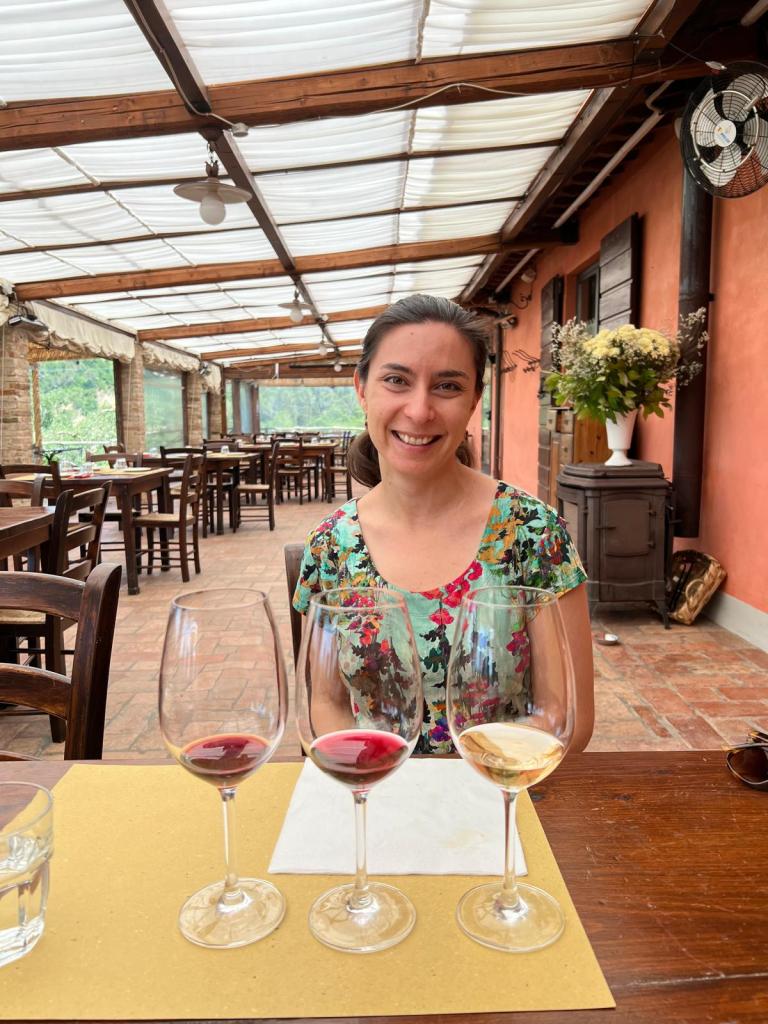
Here is a more direct English translation:
Voi ch’ascoltate in rime sparse il suono
By Francesco Petrarca, translated from the Italian by A. S. Kline
You who hear the sound, in scattered rhymes,
of those sighs on which I fed my heart,
in my first vagrant youthfulness,
when I was partly other than I am,
I hope to find pity, and forgiveness,
for all the modes in which I talk and weep,
between vain hope and vain sadness,
in those who understand love through its trials.
Yet I see clearly now I have become
an old tale amongst all these people, so that
it often makes me ashamed of myself;
and shame is the fruit of my vanities,
and remorse, and the clearest knowledge
of how the world’s delight is a brief dream.
Link: https://www.poetryintranslation.com/PITBR/Italian/PetrarchCanzoniere001-061.php#anchor_Toc9485186
Knowledge that “the world’s delight is a brief dream” – living “as if the world could briefly satisfy my wish” – these are not cheery sentiments, but we have probably all felt at one time or another how brief our lives are, and how brief the moments of elation are (falling in love, visiting an exciting place, reaching a goal, or even just a day of particularly fun and meaningful connection with family and friends) compared to the rest of it (the hard work of lasting love, the dullness of daily routine, etc.)
Petrarch wrote that last line with Laura in mind, but perhaps also with travel in mind—he traveled widely for pleasure and has even been called “the first tourist.” On that note and to end this post, here are some random pictures I took as a tourist in Florence:
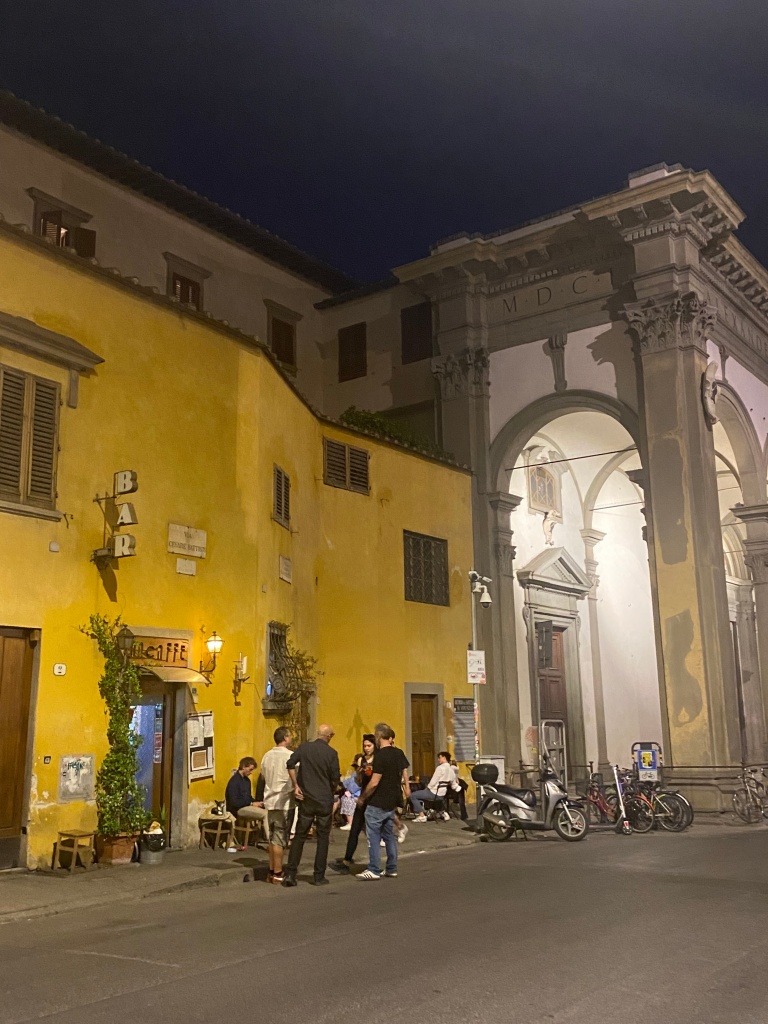
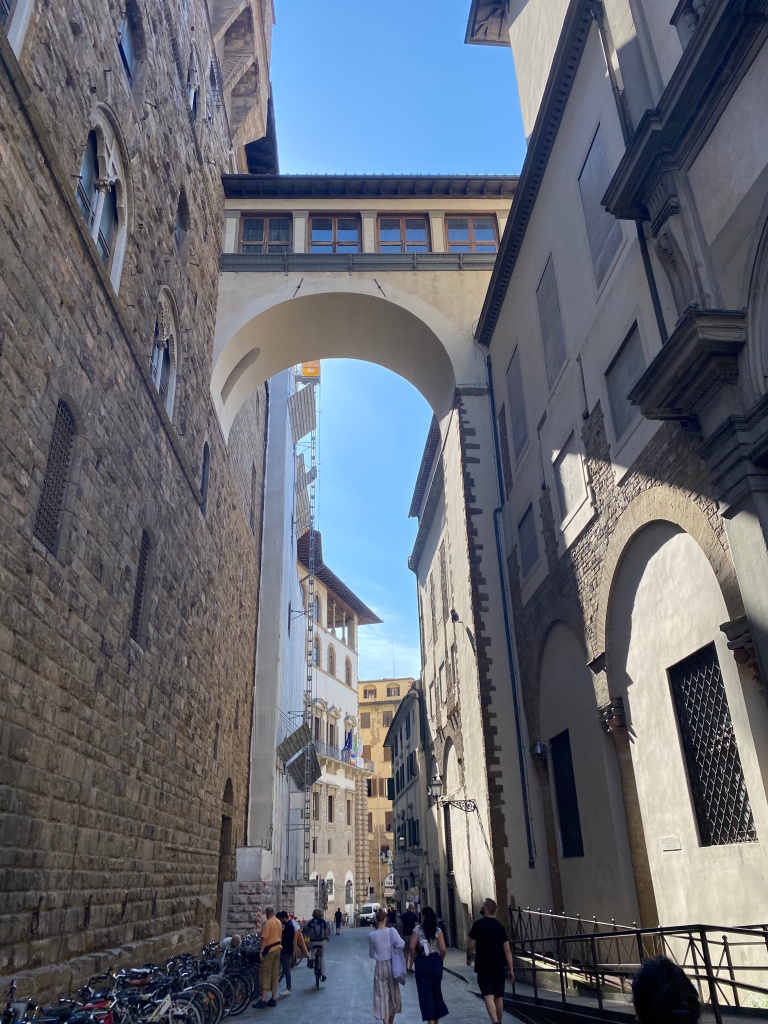

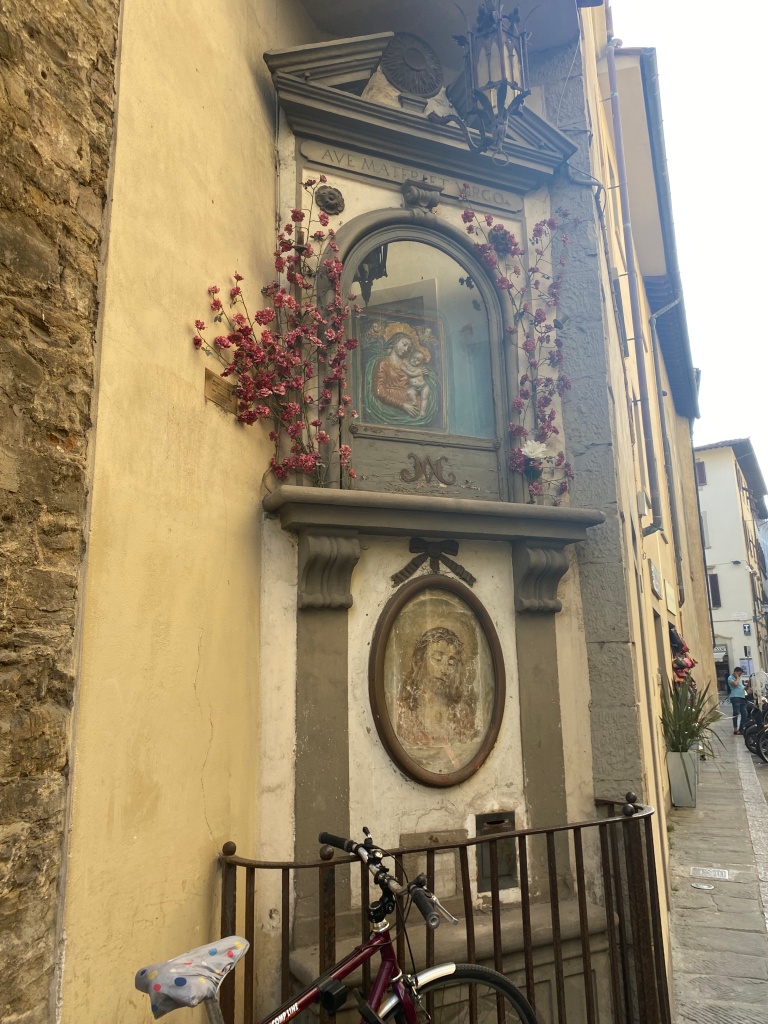
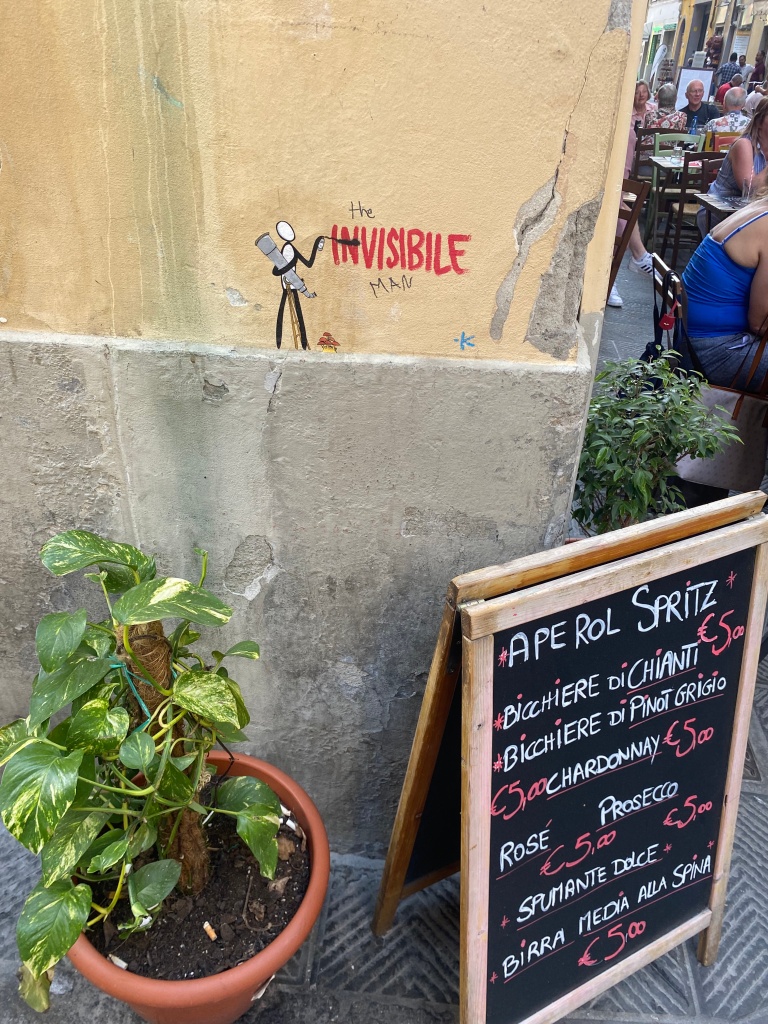


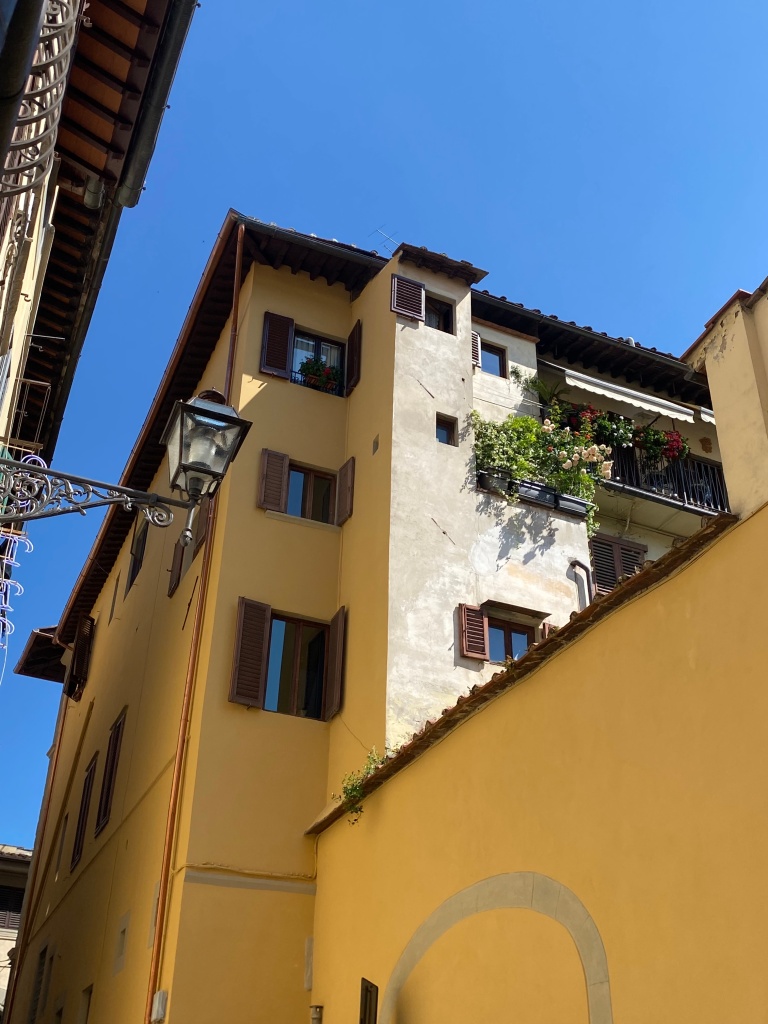
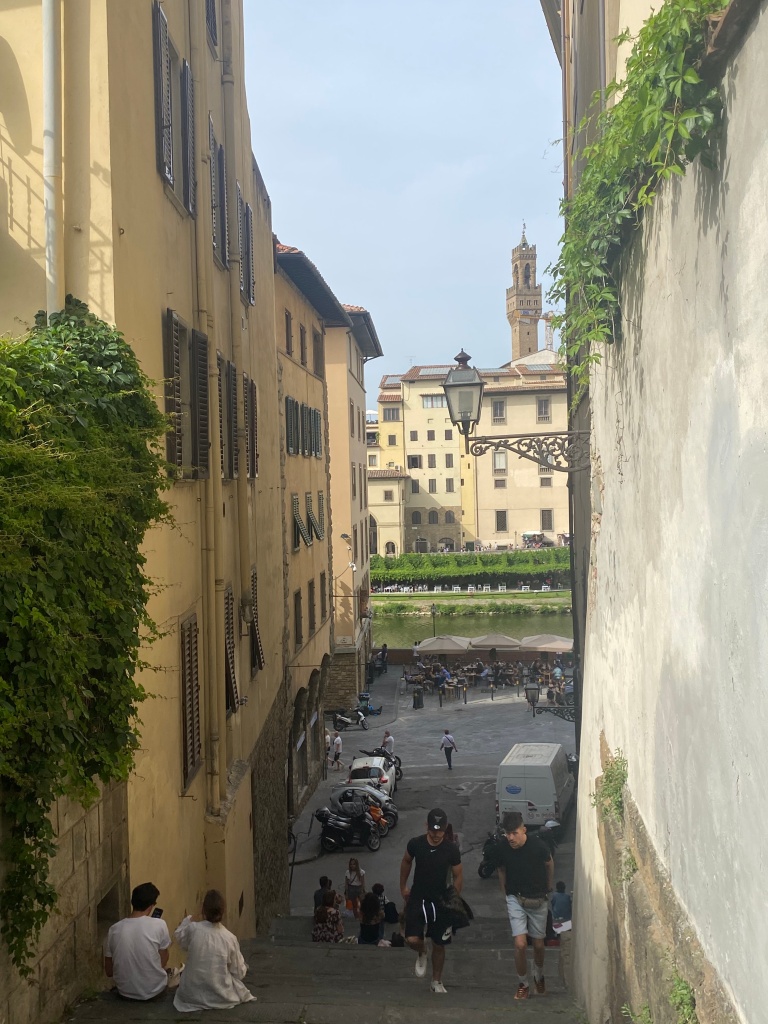
Thank you for reading!